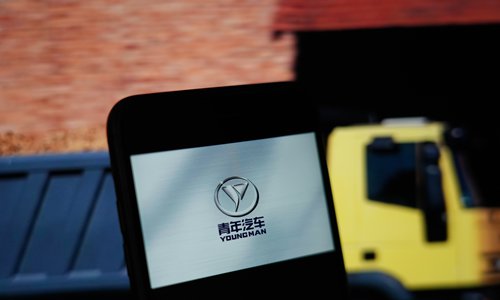HOME >> BUSINESS
Controversial engine idea doesn’t hold water
Source:Global Times Published: 2019/5/26 22:00:42
Public skeptical of Youngman Auto executive’s latest project

File photo: IC
The Hi-tech Zone of Nanyang, Central China's Henan Province, said Sunday that a controversial new water-hydrogen engine involved in its automotive innovation is a prototype that requires improvement. It also said that the 4-billion-yuan ($580 million) investment was intended to be used for the construction of a hydrogen-energy-automobile industrial park, but the project has not been approved yet.
Pang Qingnian, the head of Youngman Automobile Group, and the new engine have made headlines. The device can be powered with water and hydrogen fuel, the local Nanyang Daily reported Thursday.
As the news went viral on China's social media, it drew widespread skepticism. "Is it an upgraded water-into-oil scam?" many netizens on Weibo asked. "How could this kind of controversial project get local government financial support?"
Media reports said that the Nanyang government bought 72 hydrogen-powered buses at a cost of 86 million yuan from Youngman in April.
The buses were listed in the new-energy vehicle (NEV) catalog of the Ministry of Industry and Information Technology (MIIT), meaning that each can receive state subsidies of 300,000 to 500,000 yuan, according to yicai.com Saturday.
The MIIT and other three ministries jointly issued a notice on improving NEV innovations in March 2018. Besides electric vehicles, hydrogen-powered automobiles have become a promising choice for manufacturers, experts said.
"China is strongly promoting new energy vehicles to reduce pollution," Dai Yande, an official with the Energy Research Institute of the National Development and Reform Commission, told the Global Times Sunday.
"Local government support for the investment was in line with the drive for environmental protection. But it is irrational for them to choose a project with no economic prospects," Dai said.
Electric vehicle technology is well developed, so it's a better choice to focus on how to produce electricity with clean energy sources, instead of carving out a new path, he noted.
Pang tried to take his hydrogen-energy-vehicle assets public by acquiring a listed company through one of his subsidiaries in 2017. He even dreamed of taking his venture to stock market and make him a profit of 2 billion yuan within four years, according to thepaper.cn on Sunday.
The subsidiary was held in Pang's daughter-in-law's name, but the plan failed in the end due to the disagreement of the listed company, the report said.
Suspicion about the project has arisen from the weak scientific support, Youngman Auto's unsatisfactory performance in recent years, and Pang's personal financial history.
Youngman Automobile Group has been listed as a dishonest enterprise 95 times, and Pang himself more than 100 times, for various reasons including a refusal to pay fines while having the ability, according to the credit information disclosure system of China's Supreme People's Court.
Posted in: COMPANIES